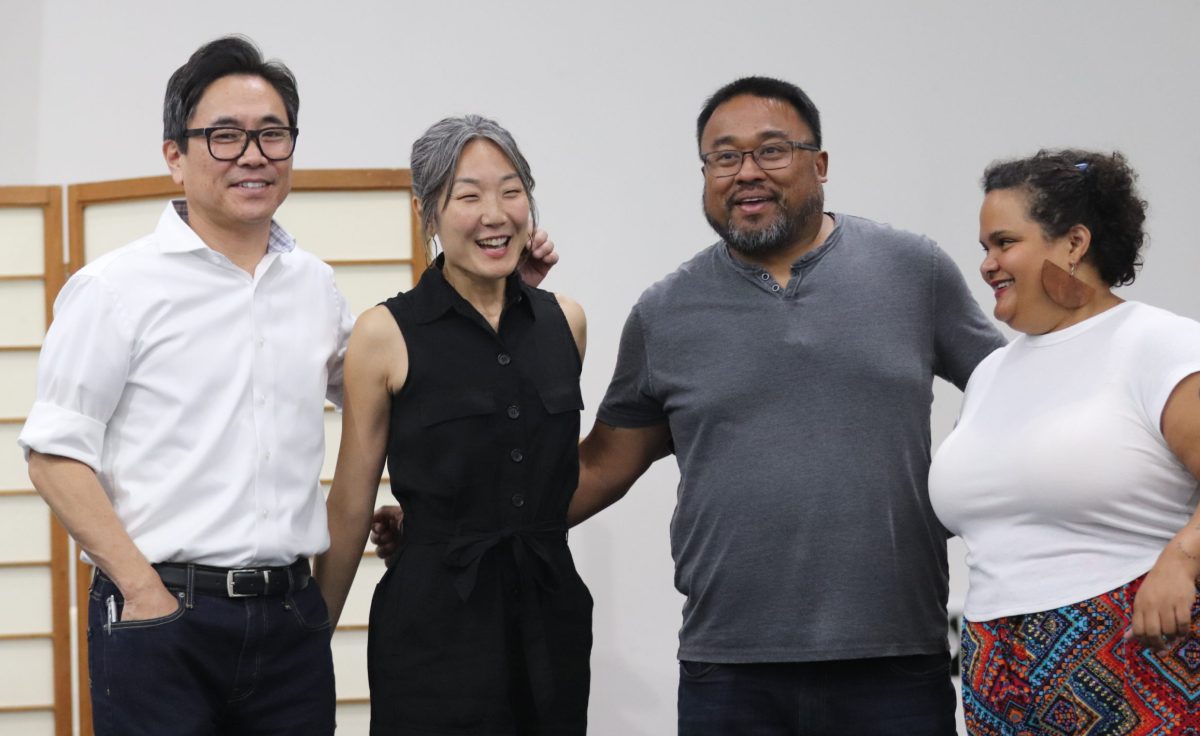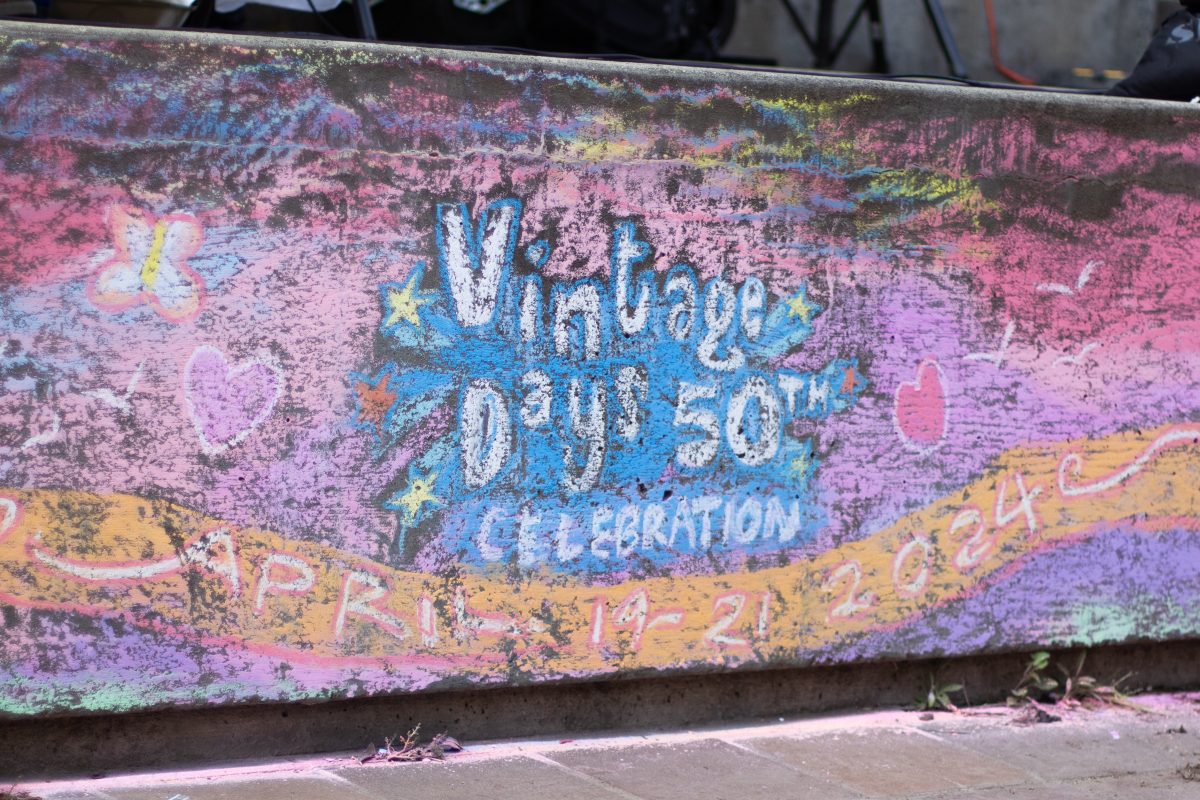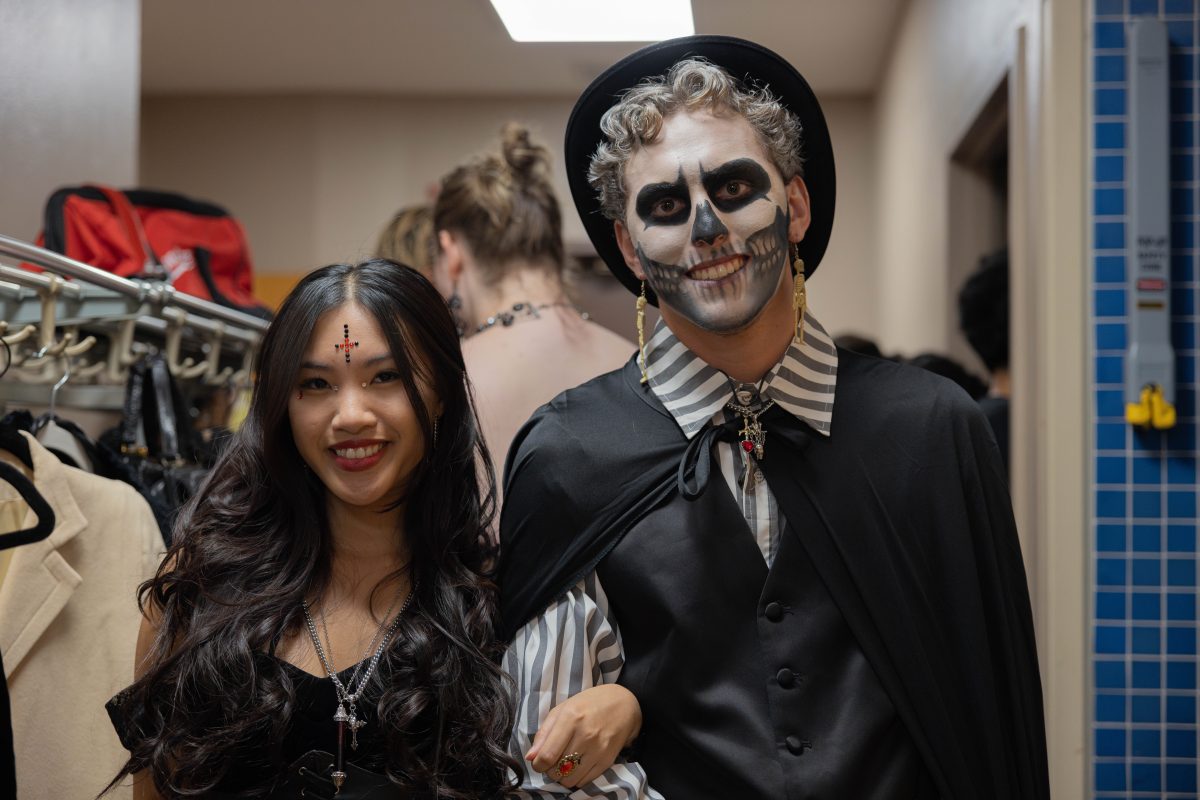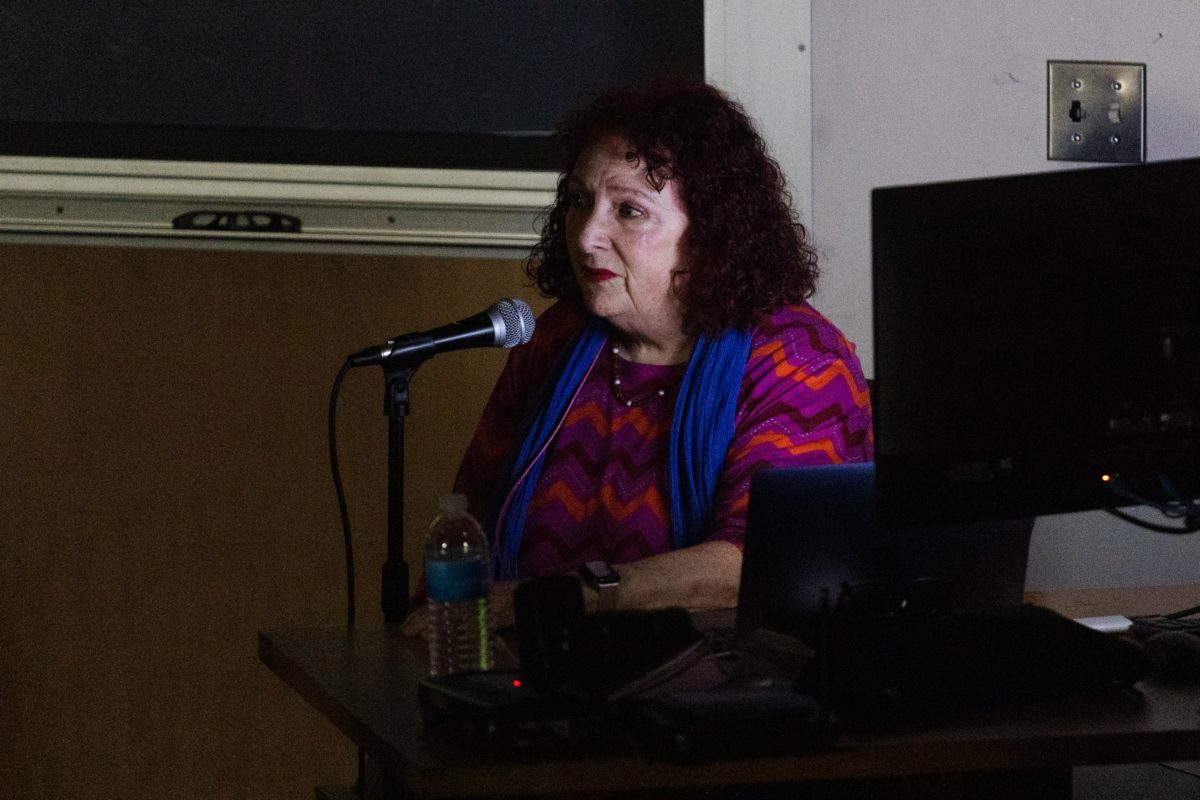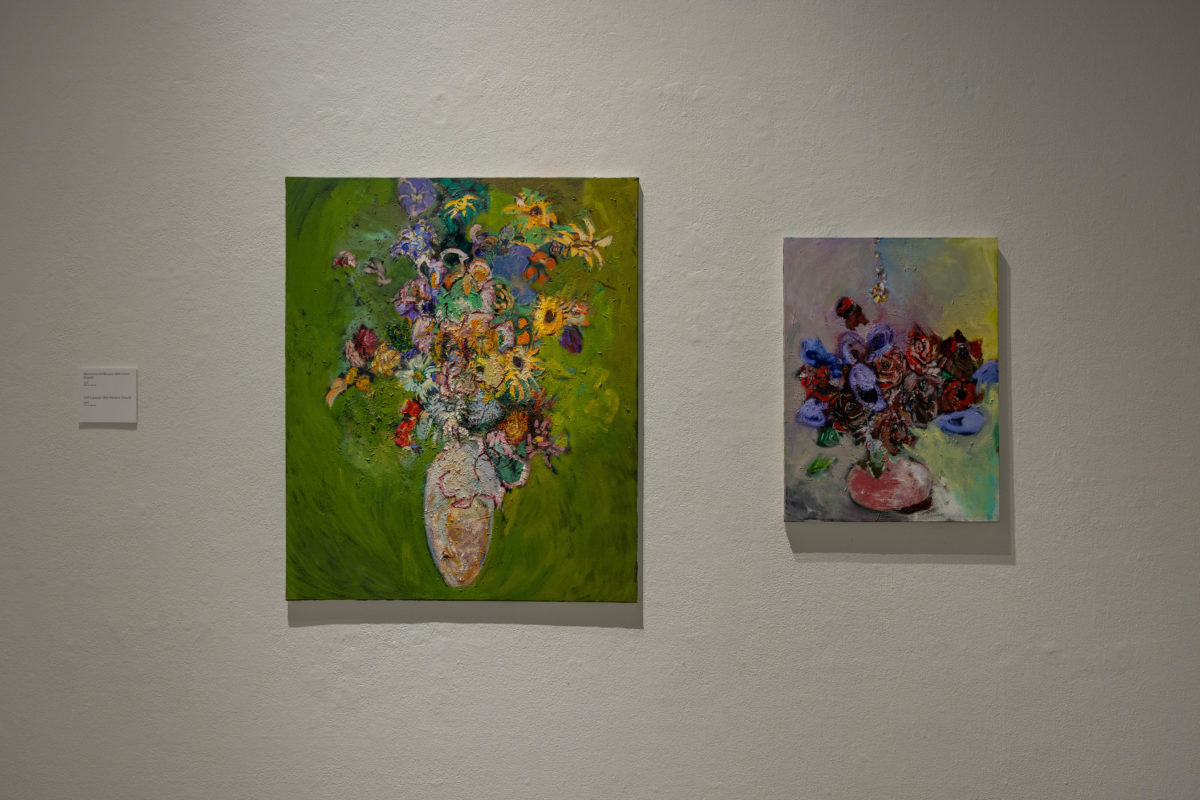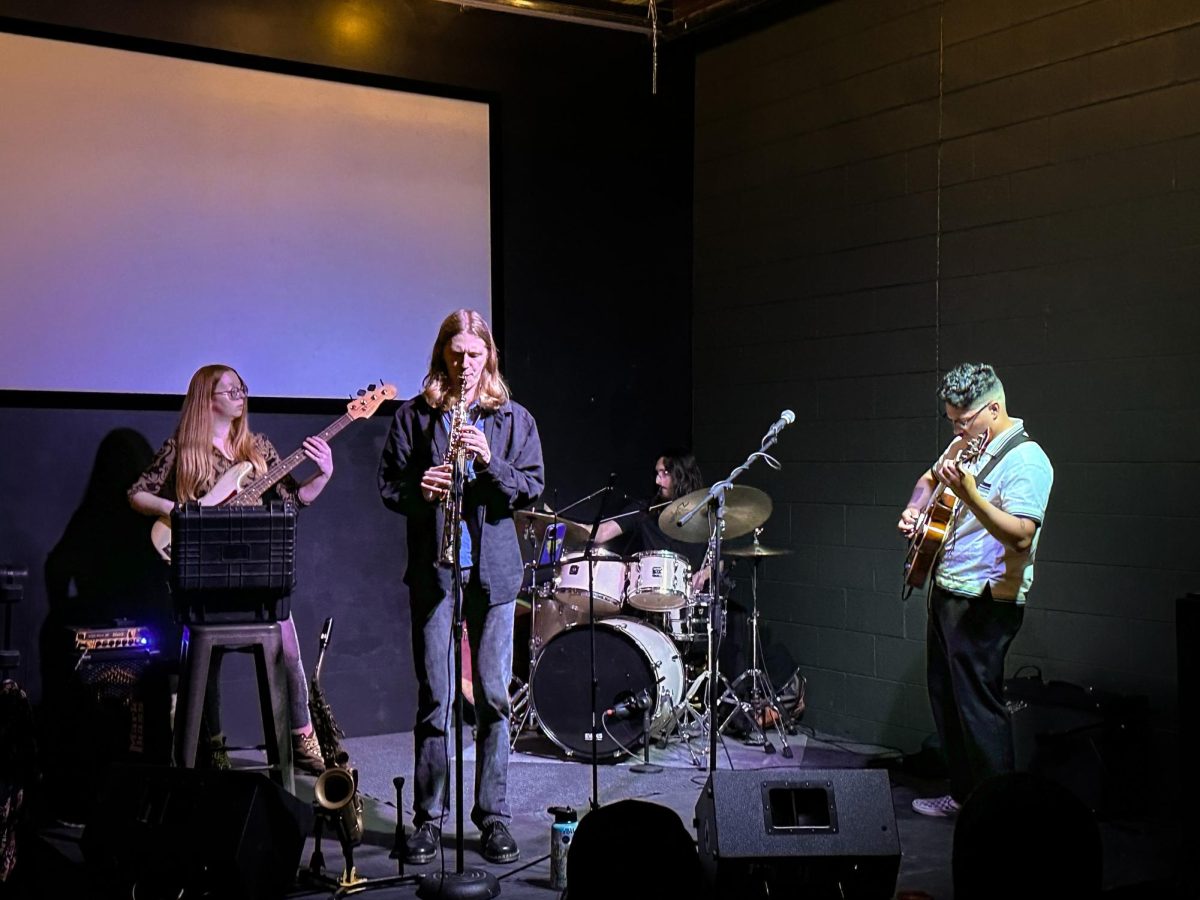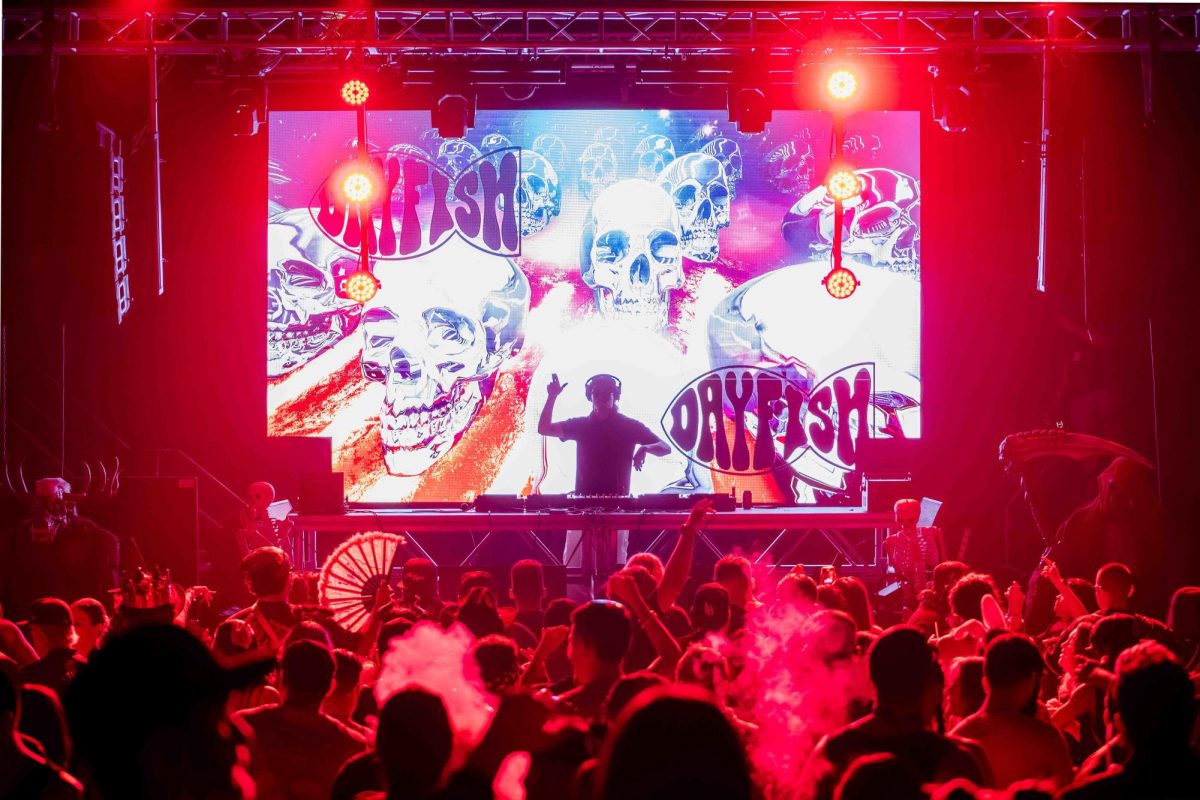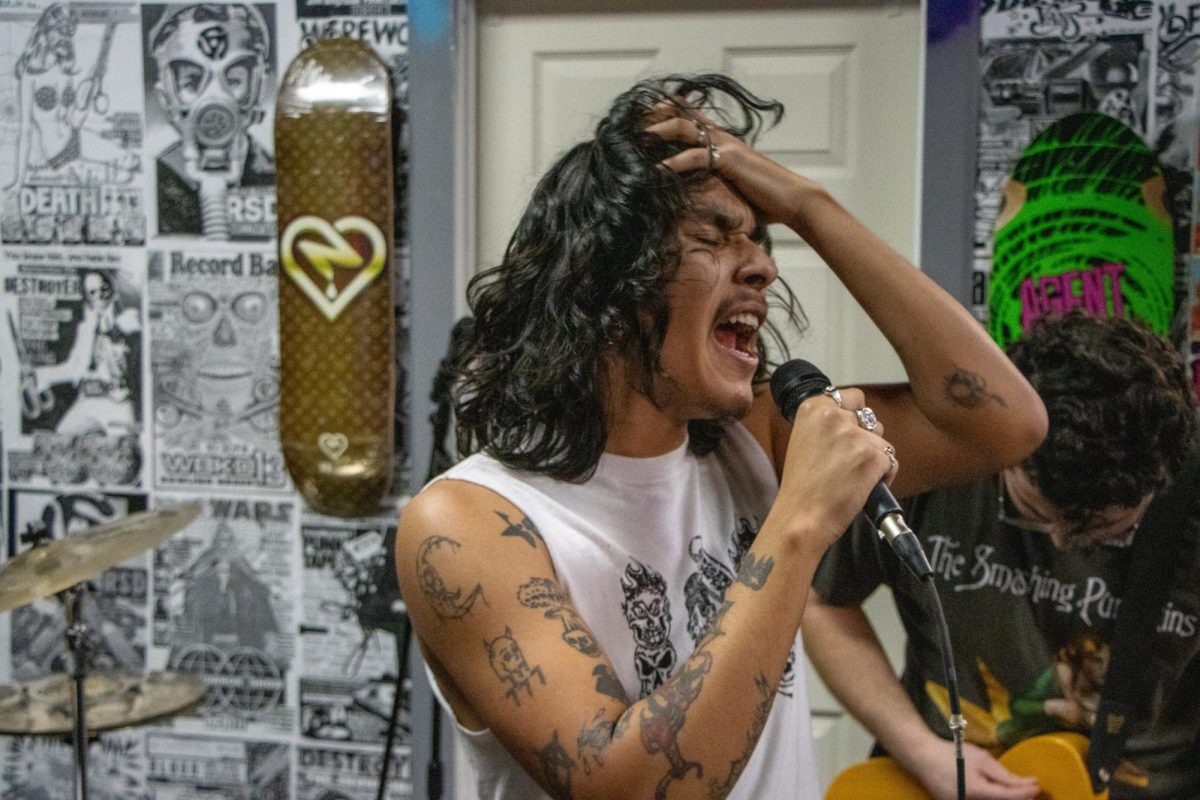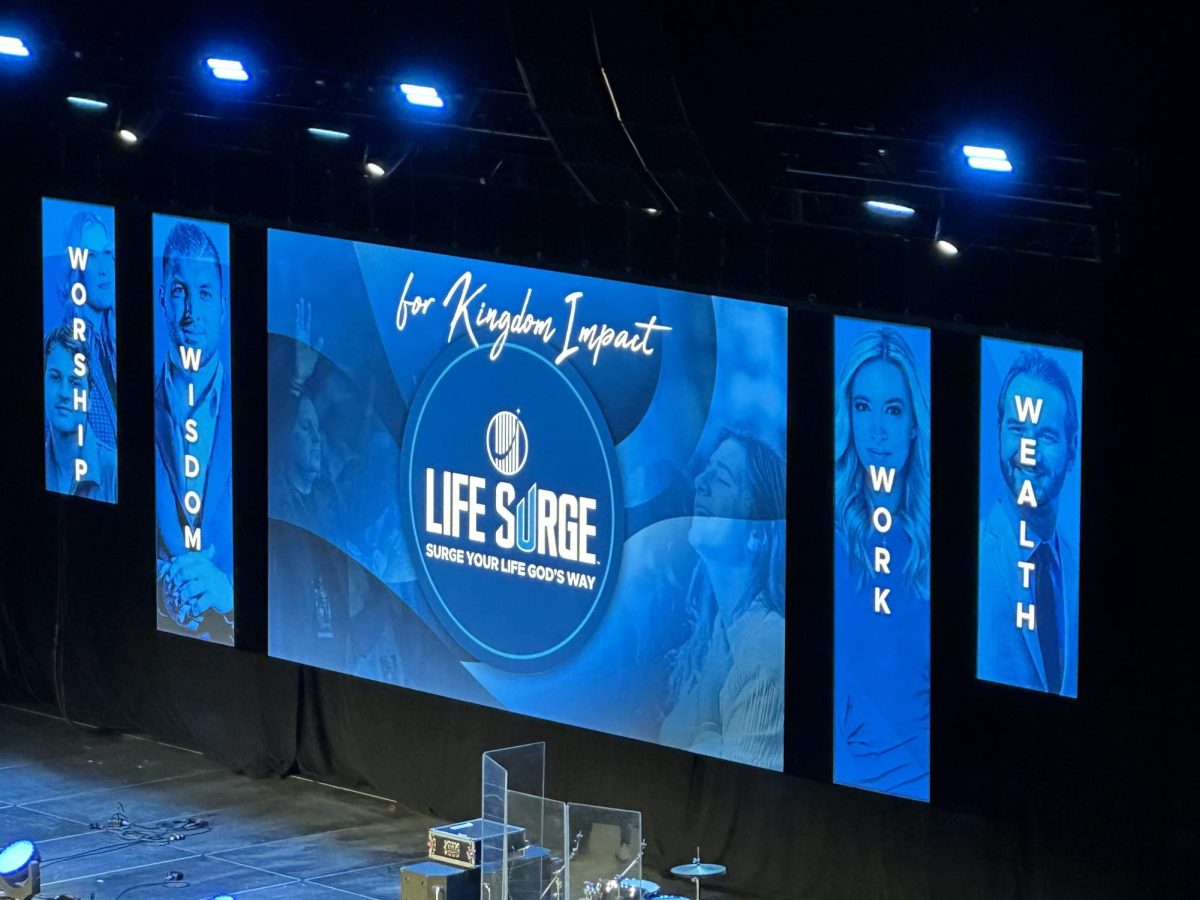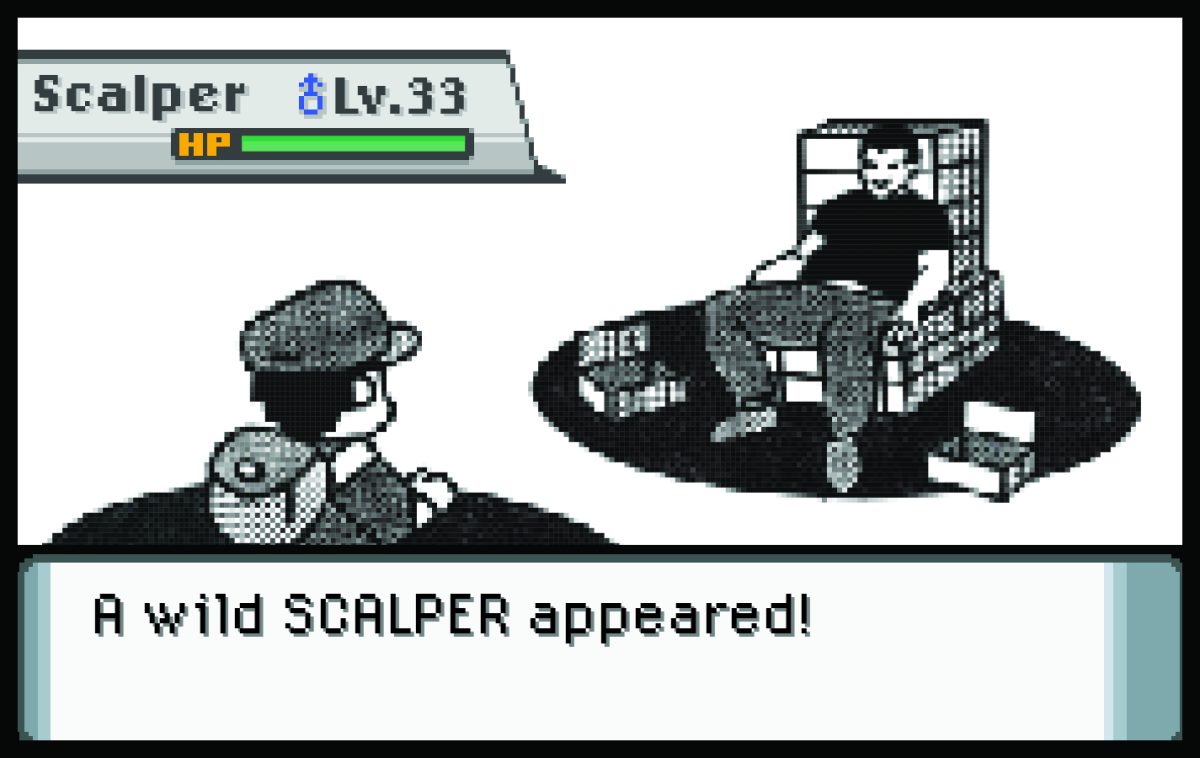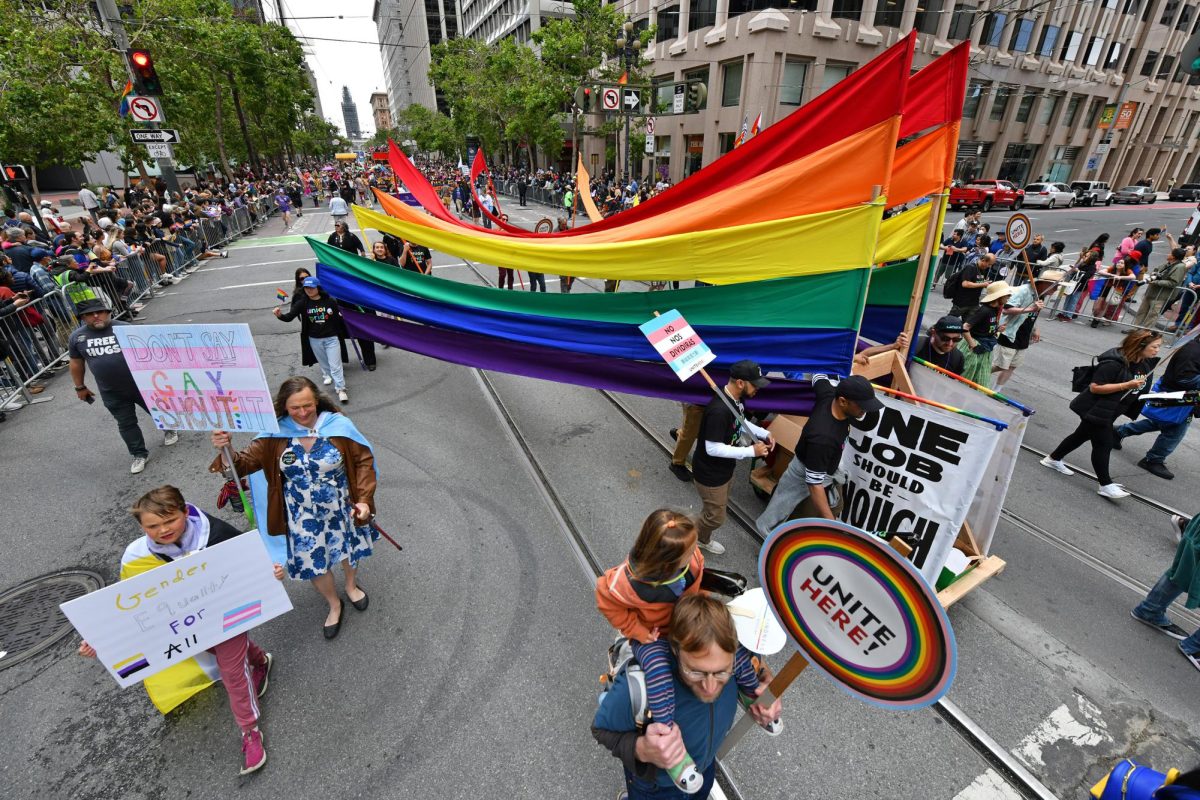Poet and author of Apocrifa, Amber Flame is an award-winning writer and artist who practices Buddhism, but is also into all sorts of mysticism such as astrology and tarot card readings.
When Brynn Saito, an assistant professor in the English department at Fresno State, asked about how she understands the supernatural, Flame said she conceives her own spirituality.
“In Buddhism, energy doesn’t just go away. When my mother passed in 2015, something broke open in my connection to everything else, not just my living life,” said Flame.
On Aug. 30, Saito held a special book launch event at the United Japanese Christian Church in Clovis for her upcoming book, “Under a Future Sky.” Three writers and poets gave voice about their spirituality and tapping into one’s unearthliness.
Saito hosted questions for writers Jason Bayani, Lee Herrick and Flame regarding the stories behind their spiritual practices and how they understand the supernatural.
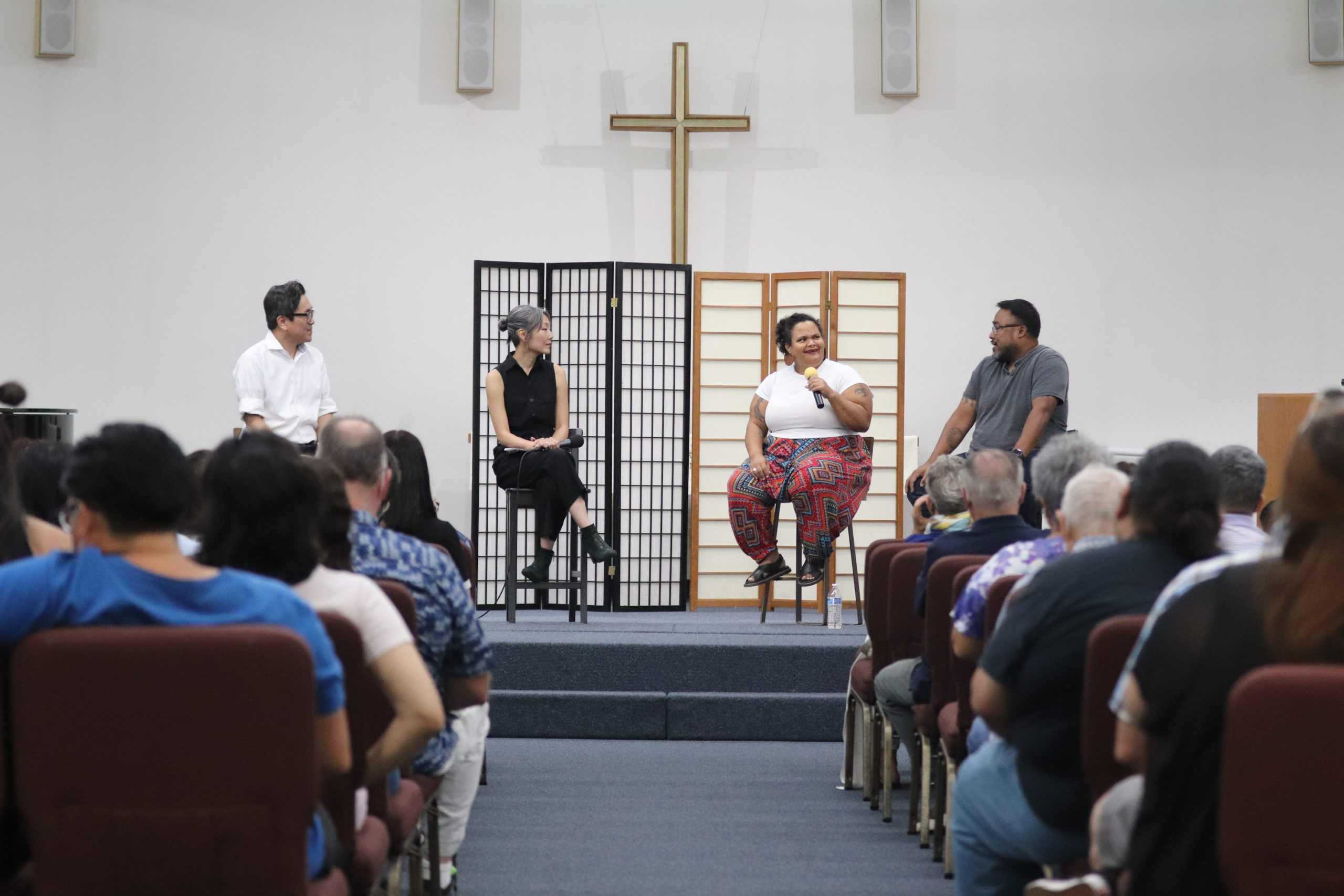
“What do you think about the sacred? The luminous? The hauntings? Are we spiritual people?” Saito asked.
Bayani, author of Locus and co-director Kearny Street Workshop, the oldest multi-disciplinary Asian-Pacific American arts organization in the country, said that in his family, ghosts and the supernatural are somewhat normalized, as if it were a common occurrence in which you would go about your day.
“Even though I have my skeptic side, in my family, ghosts are just a thing. There’s no mystery behind it. It’s not a big deal; it just happens,” Bayani said.
Bayani said that people are constantly severed from that spiritual connection.
Herrick, is the poet laureate of California and a Fresno City College professor who didn’t really grow up in a church. Instead, God found him, he said.
Although he doesn’t consider himself a Christian, Herrick mentioned that there are times when people need something, alluding to the fact that people possibly may turn to faith during desperate times.
“That’s the thing about ghosts, they don’t need our attention to be there,” Herrick said.
After the discussion, the three writers and poets each went on stage to read excerpts from their respective books.
The first was Bayani, who wrote a poem about his time in Germany and the complexity of language itself and how it is used.
“I met a poet over there who was having trouble translating the lines of my poems, specifically the words ‘I love you’ in the city. She said, ‘I can’t make that sound correct, it wouldn’t sound so sincere.’ I didn’t tell her the person I wrote it for did not think so either,” Bayani read to the audience.
Herrick read a love poem for his birth mother in which he used subjects of songs and music as an allegory for his birth called “How music stays in the body.”
“Your body is a song called birth, or first mother, a miracle that gave birth to another exquisite song, one song that raises three boys with a white husband,” Herrick said.
Smell was a big theme in Flame’s readings. She talked about her “funk,” a certain smell that is not necessarily associated with a clean and soapy smell, but a natural one that some mothers have that provides comfort and warmth to their young children.
“There’s a thing that black people say when kids get to a certain age, it’s that ‘They’re starting to smell themselves.’ This means that they’re starting to get funky and they often think that they’re grown,” Flame said.
For the final reading, Saito took the stage to talk about specific trips and memories with her father who was present at the event as well.
Two projectors sat beside the stage of the room displaying relevant photos of the trip as the lights dimmed to set the tone of her memories.
The first one was about her pilgrimage to the Poston Memorial Monument in Arizona, a historic internment camp site from World War II.
“I felt the bodies of our elders blooming in the steady heat, rising, rising and rising,” Saito read.
The next reading from Saito was about the Golden Gate Bridge, connecting it to the 2016 presidential debate with themes and dimensions of ancestral history.
“On the radio, the white general and the white general yank each other to the deep ends, good heavens, don’t teach me how to hate my language tonight. My lips and my language tonight,” Saito read.
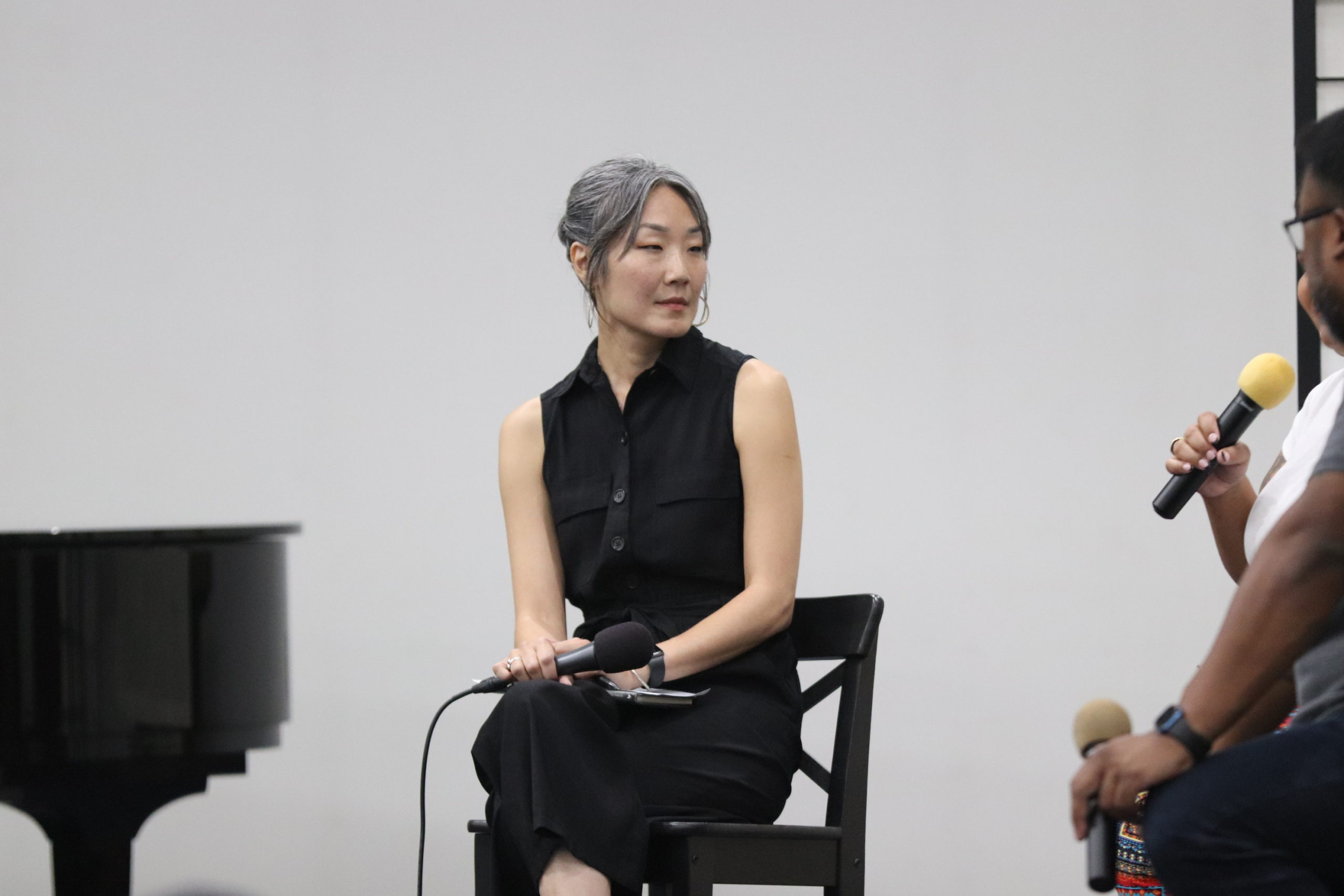
Saito then read a letter. It was a piece that pays homage to her father who played a pivotal role in her life.
On the two screens, a photo was displayed of the house that she grew up in with her father, who worked on his garden for four years. It’s the home that she said she’s been longing for and missing since her travels from New York to the Bay Area.
“I understand now that I am nothing, I am the daughter of a living father, blessed to be returning to you after our fire night travels, to North American landscapes, the prison desert homes and other tales of prisons with and without bars and barbed wire,” she said.
Afterward her father came upon the stage to say that the trip that they had together was very eye-opening.
“It was very heartwarming. What made me feel that way was that you, Brynn Saito, were there, like my own parents were there at one time,” alluding to the various memorials of the internment camps where Greg Saito’s parents were incarcerated during World War II.




